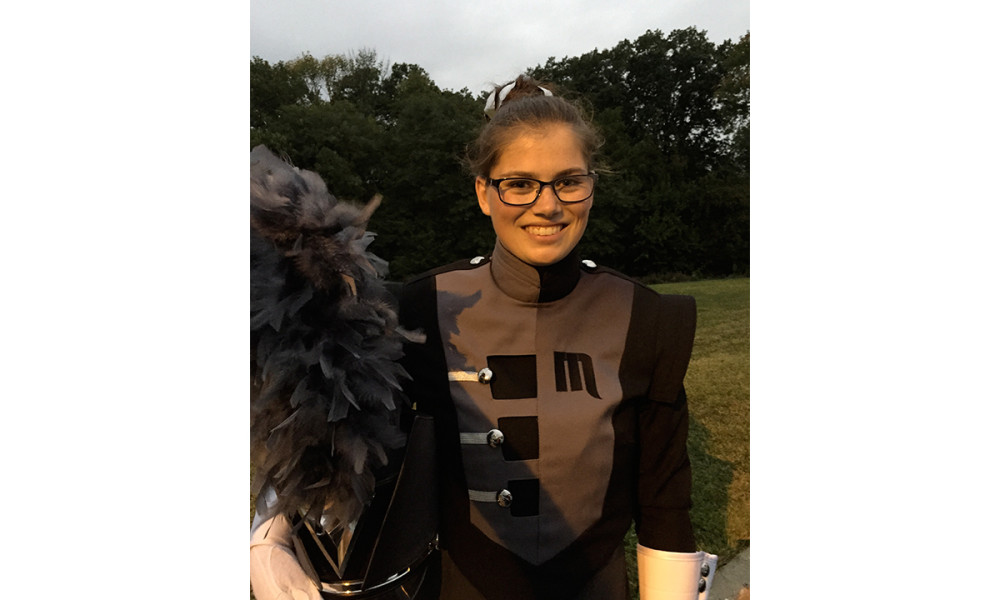Being in marching band comes with its fair share of challenges, but eventually it’ll be one of your greatest adventures.
I play the bassoon, and I have since sixth grade. I love it more than almost anything else in the world, and I plan on continuing to play through my college years.
However, playing bassoon brought with it some issues before the start of my freshman year. Both of my parents are band directors at other schools, so it was pretty much assumed that I was going to do marching band. Much to my disappointment, I discovered that you couldn’t march with a bassoon.
Sectional Struggles
My mom thought that since I had previously played the clarinet that it would be the most wonderful thing ever for me to march clarinet. In her mind, I imagine, she envisioned me playing all of the solos and marching perfectly and making tons of friends and being the star of the clarinet section.
Exactly the opposite happened. I was almost the worst player in the section, and I really struggled to learn the music. As far as marching goes, I was pretty decent for a freshman, but the social aspect was the real kicker. I’ve always been somewhat of an oddball, and I’m well aware of the fact that social situations aren’t my forte, but no one got along in the section. Marching band has always been and will always be a place where everyone fits in, but that year, the clarinet section didn’t seem to get the memo.
Long story short: I didn’t want to march clarinet again my sophomore year. This time, however, my mom was a lot more willing to let me try out for the color guard. Shockingly enough, I made it! I was so excited to learn how to spin a flag and dance and do all of those other fancy French terms that I can’t spell. However, the guard proved to be much too stressful of a section for me to handle; I barely managed to keep up. There was no way I could stay in that section. I had forged some really strong bonds with a lot of girls that I’m still friends with now. I had to keep marching, but what section would I go back to?
Ego-Clashing
As soon as the marching season ended my sophomore year, I began to stress out about what I would march next year, and my mom kept telling me not to worry about it for another few months. Then, a few months later, I began to stress out all over again. That is, until my mom informed me that all four of our previous drum majors were graduating, and they would need to select four more. I really didn’t think I was good enough, but my mom kept pushing me to try out, so I did. Lo and behold, I was selected as one of the four drum majors for our 2014 marching season! It was a miracle!
Previously, I had thought that relearning the clarinet was the hardest thing I was ever going to do. Then, I thought that color guard was the hardest thing I would ever do. I was kidding myself.
Being a drum major was the most physically, mentally, and emotionally challenging thing I have ever done, hands down. That year, the four drum majors did not get along. We all had really strong personalities and completely different ideas about how to make the band better, so there was a lot of ego-clashing that occurred.
The most tension-creating event of the year was band camp. The directors didn’t know who they wanted on the center podium, so they switched us around for three weeks, and they didn’t decide until about an hour before the parent show. During the entire camp, we kept trying to one-up each other in every aspect, including our conducting styles, which really messed us up later on. We never matched, and because of that, both the audience and the marchers on the field couldn’t find a definite beat. One of us was always about a sixteenth note ahead or behind, and it made the marchers’ jobs really difficult.
Pulling It Together
This struggle continued until band camp of this previous season, 2015. Our newest assistant director of bands (Jacob Carpenter, previous drum major of the Blue Stars) pulled us into the percussion room and spent a good hour re-teaching us conducting, so that we could find the same beat. It wasn’t an immediate fix, though, and we had to work really hard the rest of the season to ensure that we’d be in time for the band.
On top of that, we were still struggling a bit to make decisions regarding sectional arrangements, bus lists, how to do attendance, and a lot of other stuff. All of us wanted to be the one to come up with the perfect solution, and none of us wanted to be the one who got shot down. But by the end of the year, we came together and led the band to semifinals at Bands of America Grand Nationals for the second year in a row, which was the first time our band had ever done that.
Current and future drum majors: My advice to you is to pick your battles. You can’t win every debate, and you can’t do your job alone. Those other people you see standing on the podiums are your lifelines. They will be there for you during your ups and downs, on and off the field. They’ll cushion the fall when you mess up (and you will mess up), and they’ll share the blame when it happens. Being a drum major is one of the greatest things you’ll ever do, and the people you share that experience with will be some of the best you’ll ever meet.


